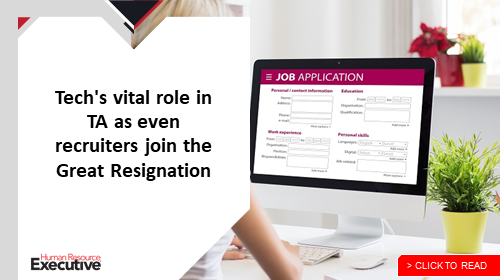When it comes to keeping talent of various workplace generations from jumping ship in today’s turbulent times, “show me the money” is far from the only thing employees are thinking, according to a new survey.
The survey from HCM provider Paychex (conducted in partnership with Future Workplace, an Executive Networks member company) revealed what employees say could get them to stay, along with gaps between employer perceptions and employee sentiments related to retention. And with 4.3 million people quitting their jobs as recently as May, the survey of more than 600 U.S. workers offers some insights for employers in developing strategies for boosting critical retention goals.
For starters, when asked about factors (other than compensation and benefits) that contribute to their decisions to stay with their company, 30% of respondents indicated that perceived job stability is their most important motivator and 60% ranked it in their top three. Feeling that their work is meaningful (45%) and having a passion for their field (33%) were the second- and third-most popular answers, respectively.
Employer brand (19%), corporate culture (19%) and employer products (13%) are the least important to employees, despite many companies’ focus on these elements in their recruiting and retention efforts, according to Alison Stevens, director of HR Services at Paychex.
“Research shows that almost half of employees say they do not want to change companies within the next 12 months, but that is never a guarantee that those employees will stick around long-term,” Stevens says. “The Great Resignation may be slowing, but that doesn’t mean companies can take a passive approach. Rather, they should use this opportunity to offer programs, perks and benefits that meet employees’ diverse needs.”
Respondents noted a desire for more flexible scheduling when asked what would make employees more likely to stay in their roles long-term. Over one-third (35%) of all respondents ranked flexibility in work hours and schedule as the No. 1 reason, and 70% ranked it among their top three. That was followed by opportunities for career advancement, skills development and internal job mobility, and increased commitment to work/life balance.
Regarding specific benefits, health insurance (64%) and retirement plans (62%) are the top drivers shown to keep employees long-term. Financial wellness benefits (41%) also ranked high among the benefits most important for employee retention.
“Perhaps the most compelling takeaway from this study is the confluence of factors that affect employees’ decisions to stay with a company,” says Jeanne Meister, founder, Future Workplace, and executive vice president at Executive Networks.
Meister, who will lead a panel discussion with three senior HR leaders titled “How CHROs Are Preparing for the New World of Work” at the HR Tech Conference in Las Vegas next month, says the survey shows that to truly understand what matters most to employees, employers must engage in deep listening with each workforce segment to personalize employee retention. For example, millennials say opportunities for career growth are very important in their decision to stay with their employer. Still, for Gen Z, aside from higher pay, access to mental health benefits was the top benefit that would make them stay. Meanwhile, Baby Boomers and Gen Xers were significantly more likely to rank job stability as the most important reason to continue to work at their company.
“The reasons for staying are complex, and the answer is no longer just offering increased salary or flexibility in where and when work happens,” Meister concludes. “Instead, our research shows employers must regularly survey employees to understand the levers which can deliver the most value to various segments of workers.”

